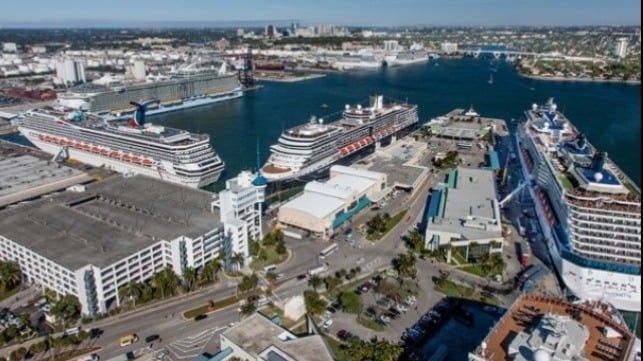
A U.S. District Court judge ruled in favor of Florida in its effort to receive a temporary injunction against the U.S. Centers for Disease Control and Prevention from enforcing its Conditional Sailing Order on cruise ships operating from Florida’s ports. Because of Florida’s probability of success on the merits of its case and the imminent threat of irreparable injury to Florida, Judge Steven Merryday enjoined the CDC from enforcing the CSO in Florida, while also giving the CDC time to revise its rules to fit within the court’s perception of the agency’s legal authority.
Judge Merryday stayed his order to give the CDC time to respond while also ordering Florida and the CDC to resume mediation regarding the broader case. As of July 18, under the judge’s current order, the CDC’s order and framework for the resumption of the cruise industry “will persist as only a non-binding consideration, recommendation, or guideline, the same tools used by CDC when addressing the practices in other similarly situated industries, such as airlines, railroads, hotels, casinos, sports venues, buses, subways, and others,” writes the judge.
In his 124-page decision, the judge reviewed the merits of the case and Florida’s accusations that the CDC exceeds its statutory and regulatory authority, is failing to recognize the impact of vaccinations and foreign cruises success at resuming sailing, and is delaying action. Florida documented its decline in tax revenues and increased unemployment payments, points the CDC did not dispute but said were broader than the cruise industry relating to Florida’s general revenue. The CDC also argues that Florida lacks standing in its claims and pointed to the issues of timing of the case and the efforts moving forward to restart cruising.
“Florida establishes a strong likelihood that many or almost all cruise ships will remain unable to sail for the entire summer season,” the order finds, continuing that “each day the cruise industry faces uncertainty about when cruises can resume, Florida not only suffers a concrete economic injury resulting from reduced revenue and increased unemployment spending, but Florida faces an increasingly threatening and imminent prospect that the cruise industry will depart the state.”
The judge reviewed each of the arguments, for example citing the history of quarantine efforts in the United States, public heath statues, and the limits of the CDC’s authority as defined by Congress and the constitution. The order confirms Florida’s constitutional and statutory standing to assert the claims in the complaint. In a ruling that could have broader implications for the CDC, the order also finds that “Florida is highly likely to prevail on the merits of the claim that CDC’s conditional sailing order and the implementing orders exceed the authority delegated to CDC or unconstitutional delegation of legislative power to CDC.”
The order provides that the CDC “may propose” not later than July 2 a narrower injunction both permitting cruise ships to sail timely and remaining within CDC’s authority as interpreted by the order. Florida would then have up to seven days to respond and the judge would conduct a hearing and issue a further order immediately resolving the issue of the preliminary injunction.
The order does not decide the merits of the broader case and instead the judge based on his preliminary finding orders Florida and the CDC to resume mediation. The issues of Alaska and Texas’s motions to intervene in the case also remains unresolved. Because the issue of harm was limited to Florida, the order only covers cruises sailing from ports in Florida.
“The CDC has been wrong all along, and they knew it,” said Governor Ron DeSantis responding to the news of the judge’s decision. “The CDC and the Biden Administration concocted a plan to sink the cruise industry, hiding behind bureaucratic delay and lawsuits. Today, we are securing this victory for Florida families, for the cruise industry, and for every state that wants to preserve its rights in the face of unprecedented federal overreach.”
The CSO, however, was issued on October 31, 2020, during the Trump Administration as well as the original No Sail Order in March 2020. As the vaccine became more widespread and virus cases began to recede, the CDC issued its framework for the resumption of cruising on April 2, 2021 under the Biden Administration. The CDC this week further revised its recommendations for cruise travelers dividing its guidance based on vaccinations. The cruise industry has previously criticized the CDC’s rules as cumbersome but is proceeding under the framework to resume sailings.
SOURCE READ THE FULL ARTICLE
https://maritime-executive.com/article/judge-grants-florida-s-motion-for-injunction-against-cdc-cruise-rules